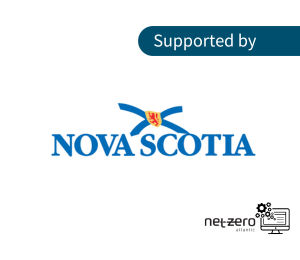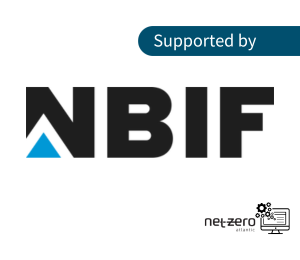Many of the solutions needed to achieve 2050 net-zero emissions goals must be invented, proven, and scaled up to commercial availability. Net Zero Emerging Concepts and Technologies (ECT) Research Program will help to accelerate the process of bringing critical emerging technologies and concepts from the laboratory to the market.
REVIEW ECT-NS PROJECTS UNDERWAY NOW
Notice of opportunity: Open call for submissions for Nova Scotia-based research and development is underway. Proposals are due August 7, 2024, at 3 PM ADT.
Approach
This program seeks to identify gaps in carbon-reduction pathways for hard-to-abate emissions and to support province-based solutions to meet these targets by securing investments and issuing open calls for R&D in two areas:
- fostering conceptual, early-stage genesis of novel technologies.
- evaluating the suitability of technologies emerging in other jurisdictions.
Objectives
The primary objective of the Net Zero ECT Research Program is to encourage and fund the research and innovation in Atlantic Canada and in both private and academic sectors to identify and develop groups of promising, emerging clean technologies, approaches and practices that warrant continued funding from government’s technology incubation ecosystem.
The following are the program's strategic objectives:
- Identify knowledge gaps to eliminate or offset the hard to abate GHG emissions (post 2030);
- Advance promising technologies and approaches that can address the gaps to net zero;
- Encourage collaborative research among Atlantic Canadian universities and community colleges, Indigenous-led institutions, the private sector and others;
- Generate intellectual property that has the potential to address global demands for low-carbon solutions; and,
- Foster thematic research networks that attract foreign investment.
Priority Research Themes
To learn what are the priority research themes for the current call, see the Applicant Guide PDF for the province in which you are based.
Contact us
A call for proposals is open starting July 8. Proposals are due August 7, 2024, 3 PM ADT. Sign up for Net Zero Atlantic’s mailing list for updates on the Net Zero ECT Research Program. Please send any inquiries about the Net Zero ECT Research Program to info@netzeroatlantic.ca.
ECT-NS Research Program
Call 3 is open; proposals are due August 7, 2024, 3 PM ADT. Nova Scotia-based projects have been supported since June 2023 and the priority research and development themes covered by the total of 20 projects are direct air capture, decarbonization of fishing and ferry fleets, nature-based solutions, agricultural emissions, long-term energy storage, electricity system challenges post 2030, and hydrogen as an alternate fuel source. Learn more about what research and development projects are in the works from Nova Scotia.
ECT-NB Research Program
New Brunswick-based projects have been supported was since November 2023 and the priority research and development themes covered by the total of four projects are agricultural Emissions, nature-based Solutions for carbon sequestration, and power challenges post 2030. Learn more about what research and development projects are in the works from New Brunswick.
“Wild cards” (high-risk, high-reward solutions that are still in early stages of development) have an important role to play in Canada’s transition to net-zero. Wild cards have the potential to fundamentally change Canada’s path to net-zero, and action is required now to ensure these solutions are ready when Canada needs them.” --Canadian Climate Institute


